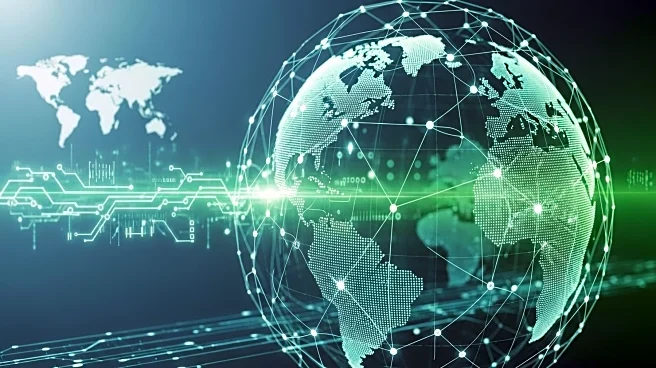What's Happening?
President Trump has signed a proclamation increasing the annual fee for H-1B visas from $215 to $100,000. This move primarily affects skilled workers from India, who make up over 70% of H-1B visa holders. The Indian government has expressed concern over the humanitarian impact on families due to these changes. Commerce Secretary Howard Lutnick stated that major tech companies are supportive of the fee hike, although representatives from companies like Amazon, Apple, Google, and Meta have not commented. Critics argue that the fee increase is an arbitrary decision lacking legal authority, and it is expected to face legal challenges.
Why It's Important?
The increase in H-1B visa fees could significantly impact the U.S. tech industry, which relies heavily on skilled foreign workers. Companies may face higher costs, potentially leading to fewer H-1B visas being issued. This could disrupt the workforce and affect the competitiveness of U.S. tech firms. Additionally, the move may strain U.S.-India relations, as many Indian families could be affected. Critics argue that the fee hike undermines the immigration system and could lead to chaos and fear among workers and their families.
What's Next?
The fee increase is likely to face legal challenges, as critics claim it lacks legal authority. The U.S. Chamber of Commerce is working with the administration to understand the implications and find a path forward. The introduction of a $1-million 'gold card' visa and a $5-million 'platinum card' visa may also face scrutiny and require congressional approval. The administration may need to address concerns from tech companies and foreign governments, particularly India.
Beyond the Headlines
The fee increase highlights ongoing debates about immigration policy and the use of H-1B visas. Critics argue that the program is abused to undercut U.S. wages, while supporters see it as essential for filling high-skilled positions. The move may prompt discussions on reforming the visa system, including changes to wage levels and the lottery process. The broader implications for U.S.-India relations and the global tech industry remain uncertain.









